
Glen Canyon National Recreation Area: Arizona's Natural Masterpiece
Glen Canyon National Recreation Area, located in Arizona, is a stunning blend of rugged landscapes, serene waters, and historical treasures. Encompassing over 1.25 million acres, this destination offers a diverse range of activities for nature lovers, adventure seekers, and history buffs alike. The highlight of the area is Lake Powell, a man-made reservoir that stretches over 186 miles, providing an idyllic setting for boating, fishing, and swimming. The azure waters of Lake Powell contrast beautifully with the red rock canyons, creating a picturesque scene that is perfect for photography and relaxation. Aside from water activities, Glen Canyon is also home to countless hiking trails that offer breathtaking views of the surrounding canyons and mesas. One of the most popular trails is the Horseshoe Bend Overlook, where visitors can witness the Colorado River's dramatic 270-degree turn. The area is rich in geological formations and ancient petroglyphs, offering a glimpse into the region's fascinating history and cultural heritage. The Glen Canyon Dam, another must-see site, stands as an engineering marvel and provides insight into the area's development and significance. For those interested in exploring further, the nearby town of Page serves as a convenient base with amenities and additional attractions such as Antelope Canyon and the Navajo Village Heritage Center. Whether you're looking to immerse yourself in outdoor adventures or simply soak in the natural beauty, Glen Canyon National Recreation Area promises an unforgettable experience.
Local tips in Glen Canyon National Recreation Area
- Best time to visit is from late spring to early fall for ideal weather and water activities.
- Book your boat rental or guided tour in advance, especially during peak season.
- Bring plenty of water and sun protection, as temperatures can get very high.
- Don't miss the Horseshoe Bend Overlook for a breathtaking view of the Colorado River.
- Visit the Glen Canyon Dam for a fascinating tour of this engineering marvel.
- Explore the nearby town of Page for additional amenities and attractions.
Glen Canyon National Recreation Area: Arizona's Natural Masterpiece
Glen Canyon National Recreation Area, located in Arizona, is a stunning blend of rugged landscapes, serene waters, and historical treasures. Encompassing over 1.25 million acres, this destination offers a diverse range of activities for nature lovers, adventure seekers, and history buffs alike. The highlight of the area is Lake Powell, a man-made reservoir that stretches over 186 miles, providing an idyllic setting for boating, fishing, and swimming. The azure waters of Lake Powell contrast beautifully with the red rock canyons, creating a picturesque scene that is perfect for photography and relaxation. Aside from water activities, Glen Canyon is also home to countless hiking trails that offer breathtaking views of the surrounding canyons and mesas. One of the most popular trails is the Horseshoe Bend Overlook, where visitors can witness the Colorado River's dramatic 270-degree turn. The area is rich in geological formations and ancient petroglyphs, offering a glimpse into the region's fascinating history and cultural heritage. The Glen Canyon Dam, another must-see site, stands as an engineering marvel and provides insight into the area's development and significance. For those interested in exploring further, the nearby town of Page serves as a convenient base with amenities and additional attractions such as Antelope Canyon and the Navajo Village Heritage Center. Whether you're looking to immerse yourself in outdoor adventures or simply soak in the natural beauty, Glen Canyon National Recreation Area promises an unforgettable experience.
When is the best time to go to Glen Canyon National Recreation Area?
Iconic landmarks you can’t miss
Glen Canyon Dam Overlook
Experience breathtaking panoramic views of Glen Canyon Dam and the Colorado River from this easily accessible overlook in Page, Arizona.
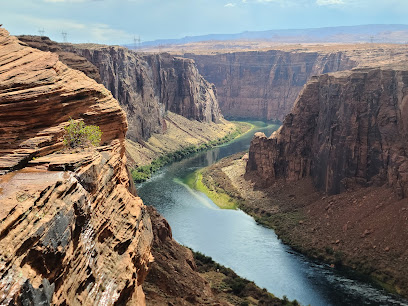
Wahweap Overlook
Experience breathtaking panoramic views of Lake Powell and Glen Canyon's stunning landscapes from this easily accessible vista point.
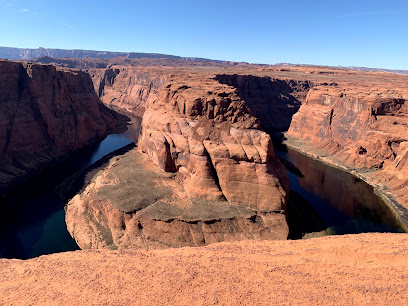
Carl Hayden Visitor Center
Explore the history and impact of Glen Canyon Dam at this informative visitor center with stunning views of Lake Powell and the Colorado River.
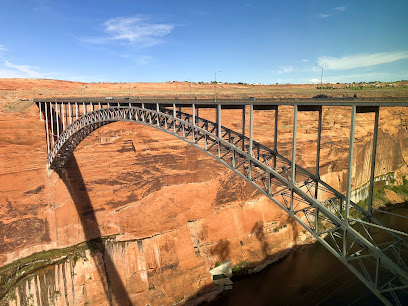
Glen Canyon Dam
Explore the Glen Canyon Dam: An engineering marvel shaping the Southwest's water and power, offering history and stunning views.

Ramsey Canyon Preserve-Nature Conservancy
Discover Ramsey Canyon Preserve: A birdwatcher's paradise with lush trails, diverse wildlife, and historical charm in Arizona's Sky Islands.
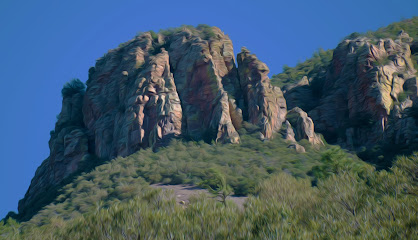
Rainbow Bridge National Monument
Discover Rainbow Bridge National Monument: Awe-inspiring natural bridge and sacred Native American site in the heart of Lake Powell, Utah.
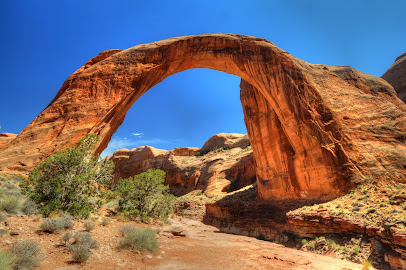
Glen Canyon Conservancy
Explore Glen Canyon: Expert advice, resources, and gear for unforgettable adventures in Arizona's stunning natural landscapes.
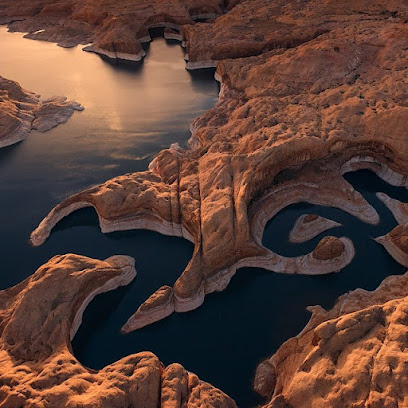
Glen Canyon
Explore Glen Canyon: A stunning landscape of history, recreation, and geological wonders in the heart of the American Southwest.
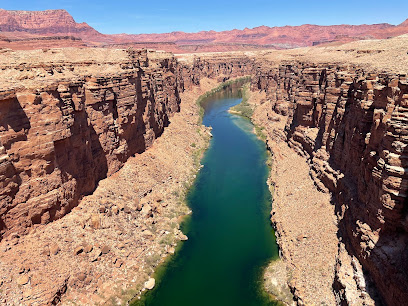
Glen Canyon National Recreation Area, Utah, USA
Explore the stunning landscapes and endless adventures of Glen Canyon National Recreation Area, from the waters of Lake Powell to the desert canyons.
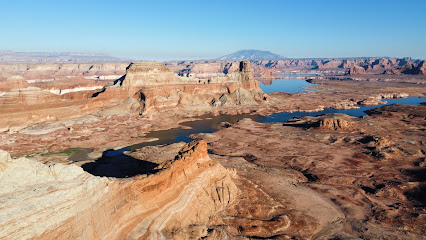
Glen Canyon National Recreation Area Visitor Center
Your adventure starts here! Discover Lake Powell and the Glen Canyon National Recreation Area at this informative visitor center.
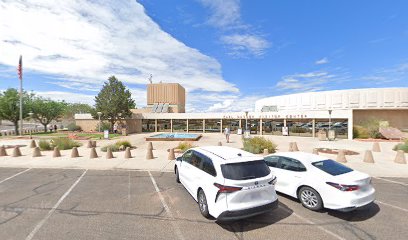
Unmissable attractions to see
Historic Navajo Bridge
Discover the Historic Navajo Bridge, an architectural marvel offering stunning views of the Colorado River and rich cultural history in Arizona's breathtaking landscapes.
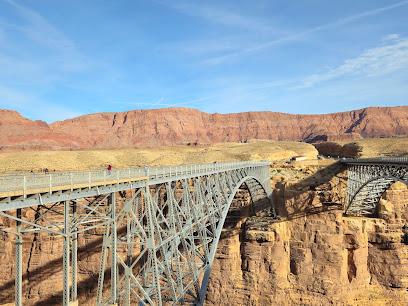
Carl Hayden Visitor Center
Explore the Carl Hayden Visitor Center, your gateway to the magnificent Glen Canyon and the remarkable Glen Canyon Dam.
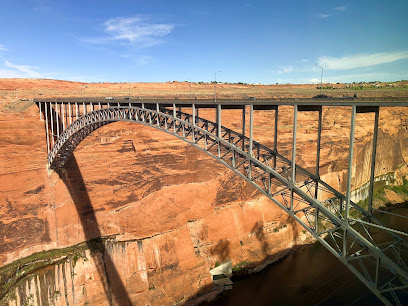
Lees Ferry
Experience the breathtaking landscapes of Lees Ferry, a scenic gem in Marble Canyon, Arizona, perfect for outdoor enthusiasts and history buffs alike.
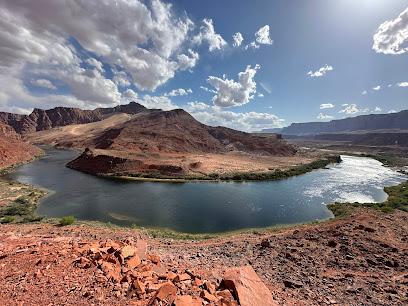
Glen Canyon Dam
Discover the breathtaking Glen Canyon Dam, where engineering brilliance meets stunning natural beauty in Page, Arizona.

Rainbow Bridge National Monument
Explore the breathtaking Rainbow Bridge National Monument, a natural marvel and sacred site in the heart of Utah's stunning landscapes.
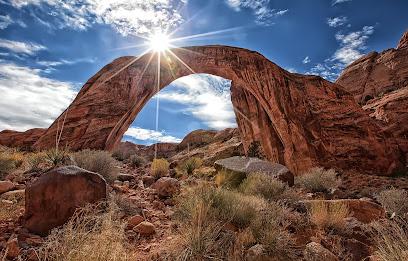
Lees Ferry Campground
Camp at the gateway to the Grand Canyon. Enjoy fishing, hiking, and exploring the rich history of Lees Ferry along the Colorado River.

Cathedral Wash Trailhead
Experience the breathtaking beauty of Cathedral Wash Trailhead in Marble Canyon, Arizona - a paradise for hikers and nature lovers alike.

Lees Ferry Launch
Discover the majestic beauty of Lees Ferry Launch, the perfect gateway to adventure on the Colorado River and the stunning Grand Canyon.

Balanced Rock
Experience the awe-inspiring Balanced Rock in Marble Canyon, Arizona, a natural wonder surrounded by breathtaking landscapes and hiking trails.

Navajo Bridge Interpretive Center
Explore the majestic Navajo Bridge Interpretive Center in Marble Canyon, Arizona, where history, culture, and stunning views converge.

Rattlesnake Canyon
Discover the stunning Rattlesnake Canyon in Arizona, a serene park known for its vibrant rock formations and breathtaking hiking trails.
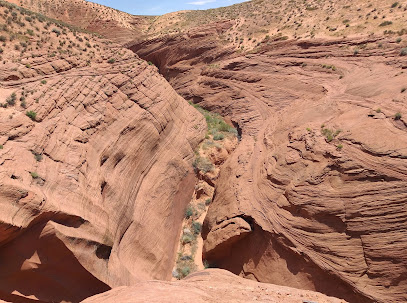
Glen Canyon Conservancy
Discover Glen Canyon Conservancy, your gateway to adventure and the breathtaking beauty of Lake Powell in Arizona.
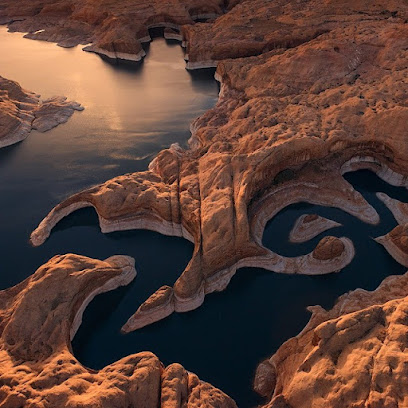
Marble Canyon
Explore the breathtaking beauty of Marble Canyon in Arizona, an outdoor paradise with stunning landscapes and adventure-filled activities.
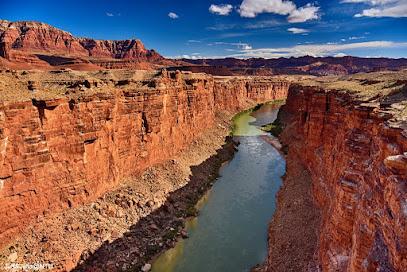
Cathedral Wash Trl
Discover the stunning beauty of Cathedral Wash Trail in Arizona, a hiker's paradise with breathtaking views and unique geological wonders.
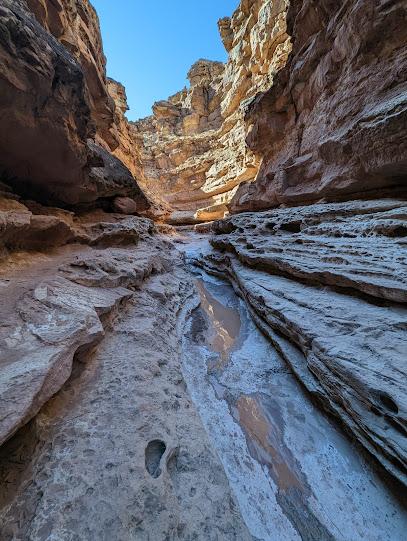
Glen Canyon National Recreation Area Visitor Center
Your adventure starts here! Discover Lake Powell and the canyonlands at the Glen Canyon National Recreation Area Visitor Center in Page, Arizona.
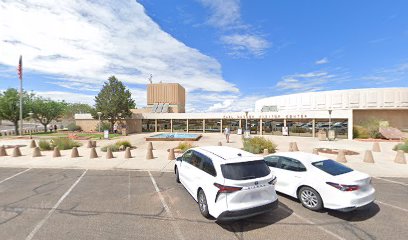
Essential places to dine
Glen Canyon Dam Overlook
Experience breathtaking views at Glen Canyon Dam Overlook – a stunning vista point showcasing nature's beauty and human ingenuity.
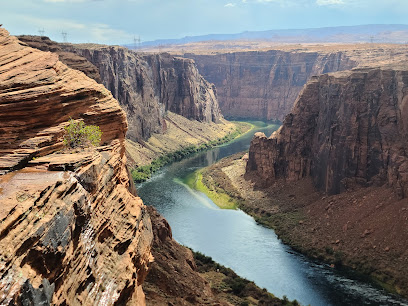
Sunset 89
Experience exquisite dining and stunning views at Sunset 89 in Page, Arizona - where culinary delights meet breathtaking landscapes.
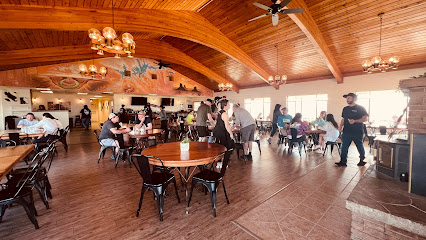
Glen Canyon National Recreation Area
Explore Glen Canyon National Recreation Area: A Natural Wonder in Arizona Offering Scenic Views, Hiking Trails, and Water Adventures.
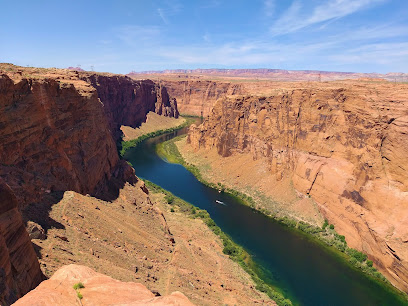
Glen Canyon National Recreation Area Visitor Center
Discover breathtaking landscapes and rich cultural history at Glen Canyon National Recreation Area Visitor Center in Arizona.
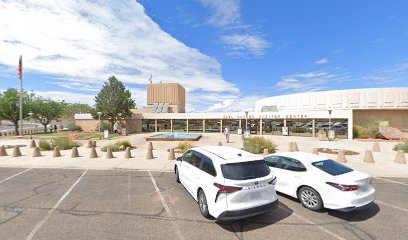
Markets, malls and hidden boutiques
Walmart Supercenter
Explore Walmart Supercenter in Page, AZ: your ultimate destination for affordable groceries, clothing, electronics, and more while enjoying the scenic beauty of the area.
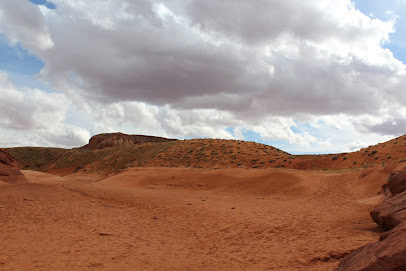
Glen Canyon Dam Overlook
Discover the stunning vistas at Glen Canyon Dam Overlook, where nature and engineering meet in breathtaking harmony.

Glen Canyon Dam
Explore the breathtaking Glen Canyon Dam, a stunning hydroelectric power plant and tourist attraction in Arizona offering spectacular views and rich history.

Glen Canyon Conservancy
Explore Glen Canyon Conservancy: Your gateway to adventure sports, outdoor education, and the stunning landscapes of Arizona's iconic Glen Canyon.
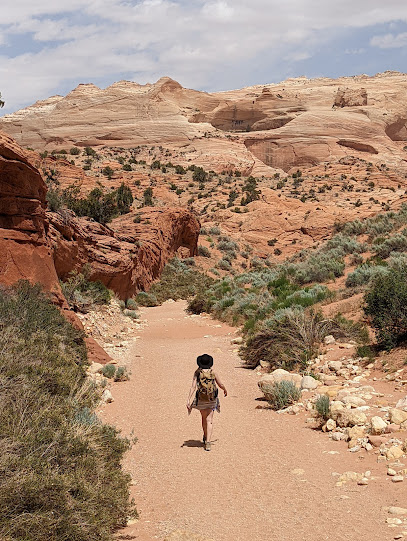
Glen Canyon National Recreation Area
Explore the breathtaking beauty and outdoor adventures at Glen Canyon National Recreation Area, a natural gem in Arizona's stunning landscape.
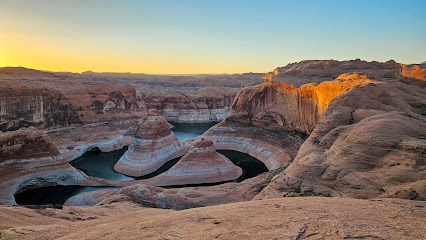
Glen Canyon
Explore the breathtaking beauty of Glen Canyon, a stunning ravine in Arizona, perfect for outdoor adventures and serene nature experiences.
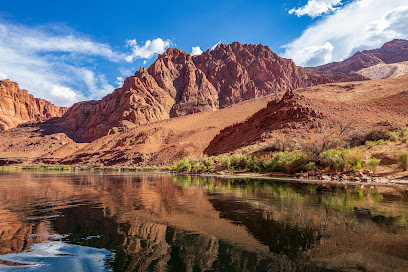
Glen Canyon National Recreation Area Visitor Center
Discover breathtaking landscapes, vibrant wildlife, and endless adventure at Glen Canyon National Recreation Area, a stunning park in Arizona.
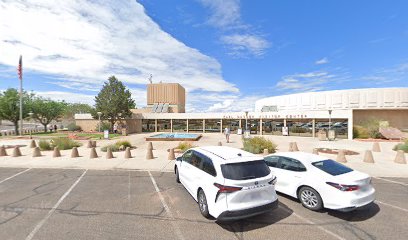
Essential bars & hidden hideouts
Glen Canyon National Recreation Area
Discover the stunning landscapes and outdoor adventures at Glen Canyon National Recreation Area, a true gem of Utah's natural beauty.

Glen Canyon Dam Overlook
Explore the stunning Glen Canyon Dam Overlook for breathtaking views of the Colorado River and the majestic Glen Canyon landscape.
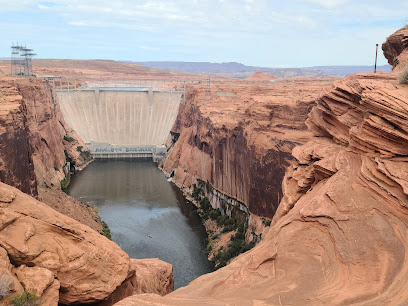
Glen Canyon Dam
Explore the grandeur of Glen Canyon Dam, an engineering marvel with breathtaking views and fascinating tours in the heart of Arizona.

Sunset 89
Experience delightful dining at Sunset 89, where flavorful dishes meet breathtaking views of the Glen Canyon Dam in Page, Arizona.
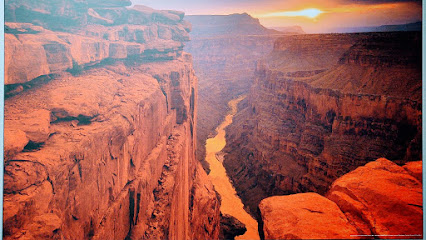
Days Inn & Suites by Wyndham Page Lake Powell
Experience the stunning landscapes of Lake Powell from the comfortable Days Inn & Suites, your gateway to nature's wonders in Page, Arizona.
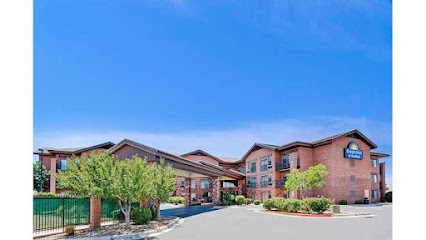
Glen Canyon Conservancy
Explore adventure and nature at Glen Canyon Conservancy, your gateway to the stunning landscapes and recreational activities of Lake Powell.
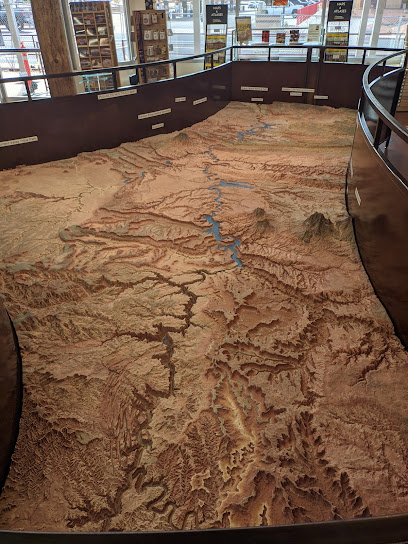
Glen Canyon
Discover the breathtaking beauty of Glen Canyon in Arizona, a natural wonder filled with stunning landscapes and endless outdoor adventures.
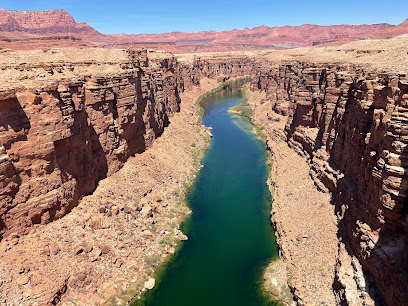
Local Phrases about Glen Canyon National Recreation Area
-
- HelloYá'át'ééh
[yah-ah-tay] - GoodbyeHágoónee'
[ha-goo-nay] - YesHaa
[haa] - NoT'a
[ta] - Please/You're welcomeBaa hózhǫ́ǫgo
[baa-hozh-ohn-go] - Thank youAhéhee'
[ah-hay-hay] - Excuse me/SorryMásání
[mah-sah-nee] - How are you?Díí baa akó nínízin?
[dee-baa-ah-koh-nee-nee-zeen] - Fine. And you?Díí baa akó nínízin. Ákót'éego?
[dee-baa-ah-koh-nee-nee-zeen, ah-koh-tay-go] - Do you speak English?Dóósh'įįd yee hólǫ́ǫ nídídiitah?
[doh-shi-dee-hol-ohn-nee-dee-dee-tah] - I don't understandNínízin
[nee-nee-zeen]
- HelloYá'át'ééh
-
- I'd like to see the menu, pleaseBaa hózhǫ́ǫgo yá'át'ééhgo níłchʼi
[baa-hozh-ohn-go yah-ah-tay-go neel-chee] - I don't eat meatNaakaii nishłį́
[naa-kay-nee-shlee] - Cheers!Ahéhee'
[ah-hay-hay] - I would like to pay, pleaseBaa hózhǫ́ǫgo níłchʼi
[baa-hozh-ohn-go neel-chee]
- I'd like to see the menu, pleaseBaa hózhǫ́ǫgo yá'át'ééhgo níłchʼi
-
- Help!Áłtah
[al-tah] - Go away!Béésh baa hózhǫ́ǫgo
[bay-sh baa-hozh-ohn-go] - Call the Police!Naaltsoos binaaltsoos
[naal-tsohs bee-naal-tsohs] - Call a doctor!Ánóshí
[ah-noh-shee] - I'm lostHwó' dootł'izh
[hwoh-doh-tl-eezh] - I'm illBéé shinii
[bay-shee-nee]
- Help!Áłtah
-
- I'd like to buy...Baa hózhǫ́ǫgo níłchʼi...
[baa-hozh-ohn-go neel-chee] - I'm just lookingNíłchʼi hólǫ́ǫgo
[neel-chee hol-ohn-go] - How much is it?T'áá hwó' shoozhí?
[taa-hwoh-shoh-zhee] - That's too expensiveYá'át'ééhgo t'áá hwó'
[yah-ah-tay-go taa-hwoh] - Can you lower the price?Háadishíísh daaztsąą?
[haa-ah-dee-shee-sh daa-ztsaan]
- I'd like to buy...Baa hózhǫ́ǫgo níłchʼi...
-
- What time is it?T'áá hwó'
[taa-hwoh] - It's one o'clockHwó' yázhí
[hwoh-yah-zhee] - Half past (10)Neesézlíí'
[nee-say-zlee] - MorningAak'ei
[aah-kay] - AfternoonBééhózin
[bay-hoh-zeen] - EveningYízhí
[yee-zhee] - YesterdayAkaad
[ah-kad] - TodayYázhí
[yah-zhee] - TomorrowT'áá hwó'
[taa-hwoh] - 1Bee
[bee] - 2Naaki
[naa-kee] - 3Táá
[taa] - 4Dįį'
[dee] - 5Ashdla'
[ah-shlah] - 6Hashké
[hash-kay] - 7Tódí
[toh-dee] - 8Nihí
[nee-hee] - 9Tááłá'
[taa-laah] - 10Náhást'éí
[nah-has-tay]
- What time is it?T'áá hwó'
-
- Where's a/the...?Háísh
[haa-eesh] - What's the address?T'áá hwó' bił hólǫ́ǫ?
[taa-hwoh bihl hol-ohn] - Can you show me (on the map)?Háadishíísh bíl saadí?
[haa-ah-dee-shee-sh beel saa-dee] - When's the next (bus)?Nízahígíí nishłį́
[nee-zaa-hee-gee nee-shlee] - A ticket (to ....)Bee át'éego (....)
[bee ah-tay-go]
- Where's a/the...?Háísh
History of Glen Canyon National Recreation Area
-
The Glen Canyon region was once home to the Ancient Puebloan people, also known as the Anasazi. These indigenous people inhabited the area from around 700 to 1300 AD. They built intricate cliff dwellings and left behind numerous artifacts and petroglyphs, which provide a window into their sophisticated society, agricultural practices, and spiritual beliefs.
-
In 1869, John Wesley Powell, a one-armed Civil War veteran, led the first recorded expedition through Glen Canyon as part of his journey down the Colorado River. Powell's explorations were vital in mapping the region and understanding its geology, hydrology, and diverse ecosystems. His detailed journals and scientific observations are still referenced today.
-
The Navajo and Ute tribes have a long-standing connection to the Glen Canyon area, with cultural and spiritual ties that go back centuries. The Navajo Nation, in particular, considers many parts of Glen Canyon sacred. Their traditions, stories, and way of life continue to influence the region's cultural landscape.
-
The construction of Glen Canyon Dam between 1956 and 1966 transformed the region dramatically. The dam, built primarily for water storage and hydroelectric power, created Lake Powell, one of the largest man-made reservoirs in the United States. This massive engineering project brought significant changes, including displacement of local populations and submersion of historical sites.
-
The creation of Lake Powell led to various environmental and cultural impacts. While it provided recreational opportunities and water resources, it also submerged many archaeological sites and altered natural habitats. Environmentalists and Native American groups have raised concerns over these changes, prompting ongoing discussions about water management and conservation.
-
In 1972, the Glen Canyon National Recreation Area was established to preserve the region's natural beauty, historical significance, and recreational potential. Managed by the National Park Service, it spans over 1.25 million acres and attracts millions of visitors each year for activities such as boating, hiking, and exploring ancient ruins.
Glen Canyon National Recreation Area Essentials
-
Glen Canyon National Recreation Area is located in northern Arizona and southern Utah. The nearest major airport is Page Municipal Airport in Arizona, which is about a 15-minute drive from the park entrance. Alternatively, you can fly into larger nearby airports such as Phoenix Sky Harbor International Airport (approximately 4.5-hour drive) or Las Vegas McCarran International Airport (approximately 4-hour drive). From these airports, you can rent a car or take a shuttle service to reach the recreation area.
-
The best way to explore Glen Canyon National Recreation Area is by car. There are several car rental services available in Page, Arizona. Once inside the park, driving is the most convenient way to access the various viewpoints, hiking trails, and the Lake Powell marina. For a unique experience, consider renting a houseboat or taking a guided boat tour to explore Lake Powell. Bicycles are also allowed, but due to the vast distances, they are less practical for seeing the entire area.
-
The official currency in the United States is the U.S. Dollar (USD). Credit and debit cards are widely accepted in most establishments within and around Glen Canyon National Recreation Area. However, it's advisable to carry some cash for smaller vendors or in case of card processing issues. ATMs are available in Page, Arizona, for cash withdrawals.
-
Glen Canyon National Recreation Area is generally a safe destination for tourists. However, always stay vigilant and aware of your surroundings. Avoid isolated areas after dark and keep valuables secure. There are no specific high-crime areas targeting tourists, but it's wise to practice standard safety precautions like locking your car and not leaving valuables in plain sight.
-
In case of an emergency, dial 911 for immediate assistance. There are ranger stations and visitor centers within Glen Canyon National Recreation Area where you can seek help. The nearest hospital is in Page, Arizona, which has medical facilities to handle emergencies. It's recommended to bring a first aid kit and ensure you have travel insurance that covers medical emergencies.
-
Fashion: Do wear comfortable, weather-appropriate clothing and sturdy shoes for hiking. Don't forget sunblock, a hat, and sunglasses to protect against the sun. Religion: Do respect any cultural or historical sites, even if they are not religious. Public Transport: Do note that public transportation is limited, so plan accordingly. Greetings: Do greet people with a friendly 'hello' or 'hi.' Eating & Drinking: Do stay hydrated and carry plenty of water, especially during hikes. Don’t litter; always use designated trash bins.
-
To experience Glen Canyon like a local, consider visiting during the shoulder seasons (spring and fall) when the weather is pleasant, and there are fewer crowds. Take a guided tour to learn about the area's geology and history. Engage with local rangers who can provide insights and tips for your visit. Don't miss the chance to stargaze; the clear desert skies offer incredible views of the night sky.
Trending Landmarks in Glen Canyon National Recreation Area
Nearby Cities to Glen Canyon National Recreation Area
-
Things To Do in Kanab
-
Things To Do in Escalante
-
Things To Do in Bryce Canyon City
-
Things To Do in Mt Carmel
-
Things To Do in Grand Canyon Village
-
Things To Do in Panguitch
-
Things To Do in Springdale
-
Things To Do in Torrey
-
Things To Do in Cedar City
-
Things To Do in Beaver
-
Things To Do in St. George
-
Things To Do in Flagstaff
-
Things To Do in Blanding
-
Things To Do in Richfield
-
Things To Do in Winslow










